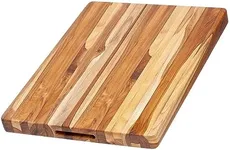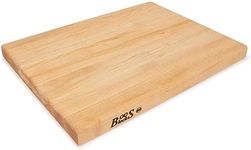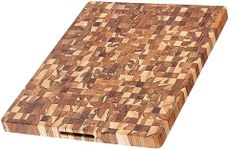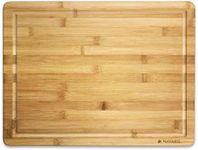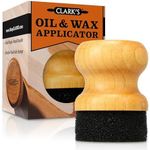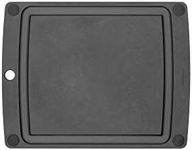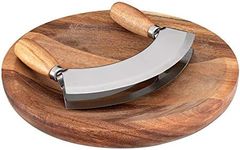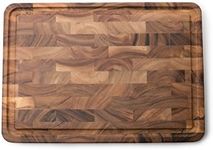Buying Guide for the Best Organic Cutting Board
Choosing an organic cutting board is a great step toward a healthier kitchen and a more sustainable lifestyle. When shopping for one, it's important to focus on the materials, safety, durability, and how easy it is to maintain. Understanding the key features will help you select a cutting board that fits your cooking habits and values, ensuring it serves you well for years to come.Material TypeThe material of an organic cutting board is crucial because it affects both food safety and environmental impact. Common organic materials include bamboo, hardwoods like maple, and sometimes coconut or acacia wood. Bamboo is lightweight and naturally resistant to bacteria, while hardwoods are durable and gentle on knives. When choosing, consider how much you cook and what you cut most often. If you want something light and easy to move, bamboo is a good choice. For heavy-duty chopping, hardwoods offer more durability.
Finish and TreatmentOrganic cutting boards should be finished with natural oils or waxes, not synthetic chemicals. This finish protects the board and keeps it from absorbing too much moisture. Look for boards treated with food-safe oils like mineral oil or beeswax. If you have allergies or want a vegan option, check for plant-based finishes. The right finish helps your board last longer and keeps your food free from unwanted chemicals.
Size and ThicknessThe size and thickness of a cutting board determine how practical it is for your kitchen tasks. Smaller boards are easy to store and great for quick jobs like slicing fruit, while larger boards provide more space for chopping vegetables or carving meat. Thickness adds to durability; thin boards are lighter but may warp over time, while thicker boards are sturdier and less likely to move around. Think about your counter space and what you usually prepare to pick the right size and thickness.
Maintenance RequirementsOrganic cutting boards need regular care to stay in good shape. They usually require hand washing and occasional oiling to prevent drying and cracking. Some materials are easier to maintain than others; for example, bamboo needs less oiling than hardwood. If you prefer low-maintenance options, look for boards that are naturally resistant to stains and odors. Your willingness to care for the board should guide your choice here.
Antimicrobial PropertiesSome organic materials, like bamboo, have natural antimicrobial properties, which help reduce the growth of bacteria. This is important for food safety, especially if you prepare raw meat or fish. If hygiene is a top concern for you, consider a board made from materials known for their antimicrobial qualities. However, remember that regular cleaning is still essential, no matter the material.

